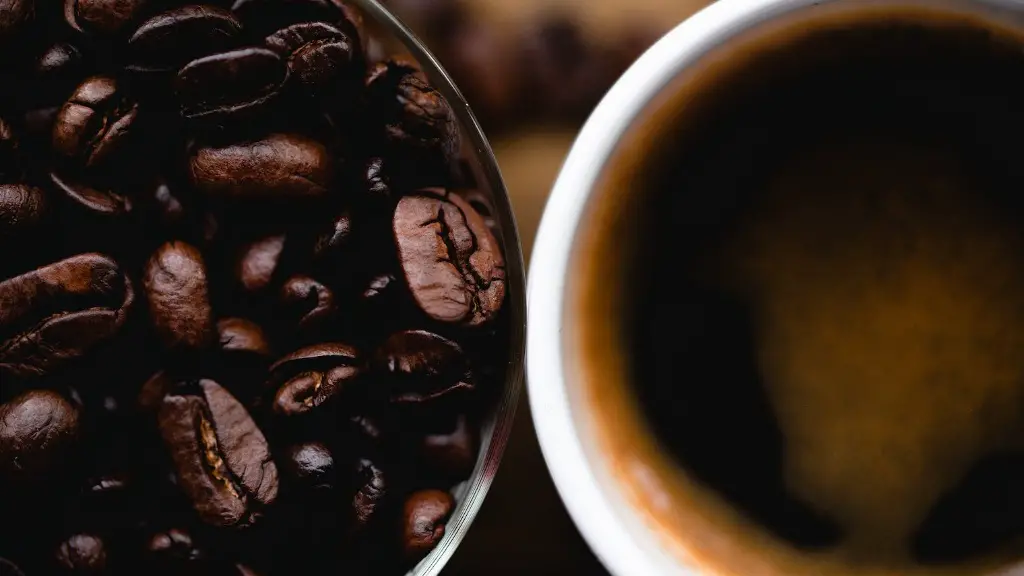Can Drinking Too Much Coffee Cause Kidney Stones?
Coffee is a popular and widely consumed beverage, but its effects on kidney stone formation are not completely understood. Studies have found potential links between high intakes of coffee and an increased risk of kidney stones in some people, while other studies suggest there is no association. This article looks at the evidence on the relationship between coffee consumption and kidney stones to help people make informed decisions about their own intake.
Kidney stones occur when small mineral deposits form within the kidney. These deposits are made up of calcium, oxalate, uric acid and phosphate. They cause pain and blockage of the urinary tract and can be incredibly uncomfortable to pass. It is estimated that over 10% of people in the US will experience kidney stones at least once in their lifetime.
Studies have explored the connection between coffee intake and kidney stone formation. On the one hand, some studies suggest an increased risk of kidney stones with high intakes of coffee, while other studies report no correlation.
In one study published in the journal Hypertension, researchers analyzed the diets of over 3,000 people for five years. They found that the risk of kidney stone formation was higher among those who drank at least four cups of coffee per day. This suggests that high intakes of coffee may increase the risk of kidney stones in some people.
Another study investigated the effects of caffeine on calcium excretion, which is a factor in kidney stone formation. The study found that when participants were given caffeine, there was an increase in calcium excretion in their urine. This suggests that caffeine may increase the risk of kidney stones in some people by increasing calcium excretion.
However, other studies have suggested that there is no association between coffee intake and risk of kidney stone formation. One study published in the European Journal of Clinical Nutrition observed a group of people over a period of 10 years and found no correlation between coffee and increased risk of kidney stones.
Preventative Measures
The current evidence suggests that coffee does not have a strong association with kidney stones in all individuals. However, there may be some risk associated with high intakes of coffee. Therefore, those who have a history of kidney stones or are at a higher risk for developing them should be prudent with their coffee intake and sugar and cream additives.
Medical professionals advise people to stay hydrated by drinking plenty of water throughout the day. Water helps to flush out the kidneys and can help to reduce the risk of kidney stones. In addition, people with a history of kidney stones should limit their intake of sodium, animal proteins and refined carbohydrates, as these can increase the risk of kidney stone formation.
Conclusion of Studies
Overall, the evidence is mixed on the relationship between coffee consumption and kidney stone formation. While some studies suggest a potential link between high intakes of coffee and an increased risk of kidney stones, other studies report no association. Therefore, more research is needed to fully understand the relationship between coffee and kidney stones.
Key Takeaways
People should consider their individual risk for kidney stones when deciding to cut back on their coffee intake. If a person is at a higher risk for kidney stones, they should reduce their intake of coffee and sugar and cream additives. In addition, individuals should stay hydrated by drinking plenty of water throughout the day to reduce the risk of kidney stone formation.
Coffee Intake and Constituents
The effects of coffee on kidney stone formation may depend on a variety of factors. The type of coffee and the various constituents, such as caffeine, antioxidants, and other compounds, may all play a role in how coffee affects individual risk.
In addition, the intake level of coffee is another factor to consider. Some studies indicate that only high intakes of coffee are associated with an increased risk of kidney stones, while other studies suggest there is no correlation.
The caffeine content of coffee is also an important factor. Caffeine can act as a diuretic, which may increase calcium excretion and thus, risk for kidney stones. Higher intakes of caffeine are also associated with an increased risk of dehydration and this can lead to an increased risk of kidney stone formation.
Lastly, the type of roast and how the coffee is processed may factor into how it affects kidney stone formation. Darker roasts, for example, may undergo a more intense roasting process and contain higher amounts of antioxidants and other compounds that can affect kidney stones.
Lifestyle Habits to Reduce Risk
In addition to being mindful of one’s coffee intake, there are other lifestyle habits that can help reduce the risk of kidney stones. Eating a balanced diet that focuses on nutrient-rich foods, such as fruits and vegetables, along with whole grains and lean proteins can help to reduce the risk of kidney stone formation.
In addition, consuming adequate amounts of dietary fiber can help to reduce the risk of kidney stones. Fiber helps to bind and remove excess calcium from the body, which prevents it from forming in the kidney.
Finally, ensuring adequate hydration throughout the day is essential for preventing kidney stones. Drinking enough water will help to flush out toxins and create an environment that does not promote stone formation.
Potential Benefits of Coffee Intake
While it is important to be mindful of coffee intake when it comes to kidney stones, there may be potential benefits associated with moderate coffee consumption.
Studies show that consuming two to three cups of coffee a day may be associated with lower risks of stroke, heart disease, and diabetes. Coffee may also reduce the risk of cancers, such as liver and prostate cancer, and provide anti-inflammatory effects. Finally, coffee can help to boost energy and improve alertness and concentration.
Finding the right balance between potential benefits of coffee and the potential risk of kidney stones is key. Moderate coffee intake is likely beneficial, while higher intakes may come with an increased risk of kidney stone formation.


